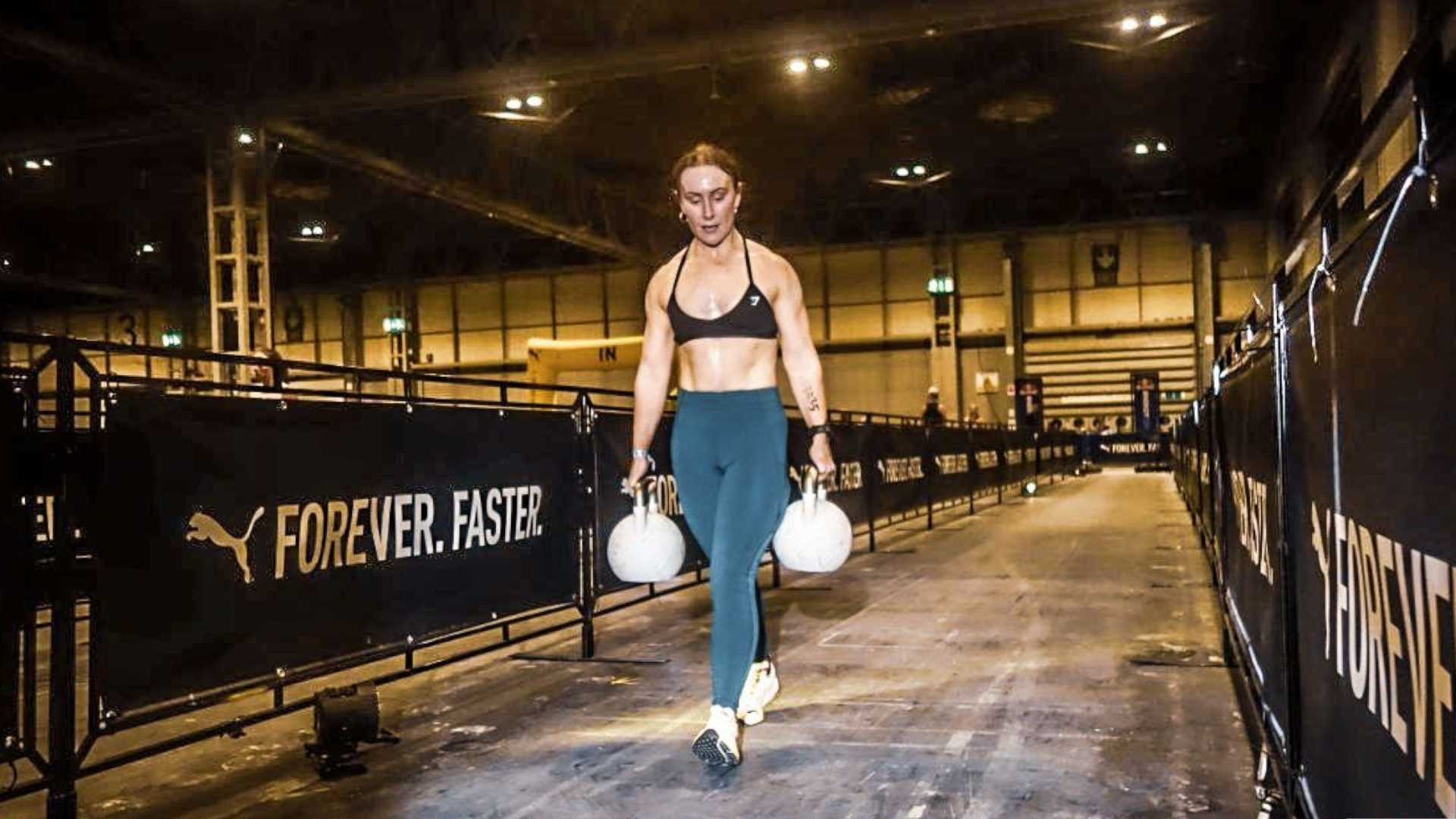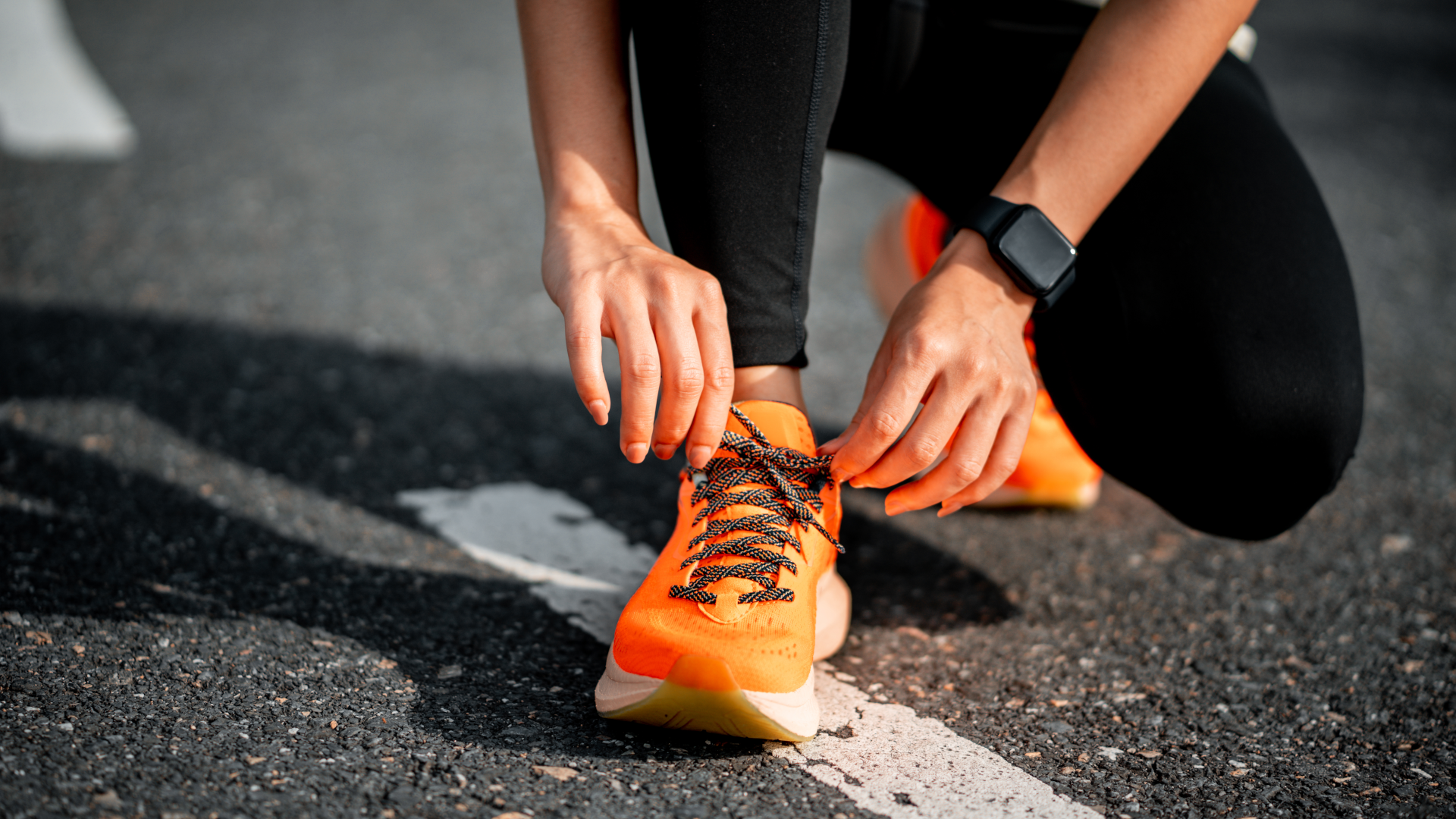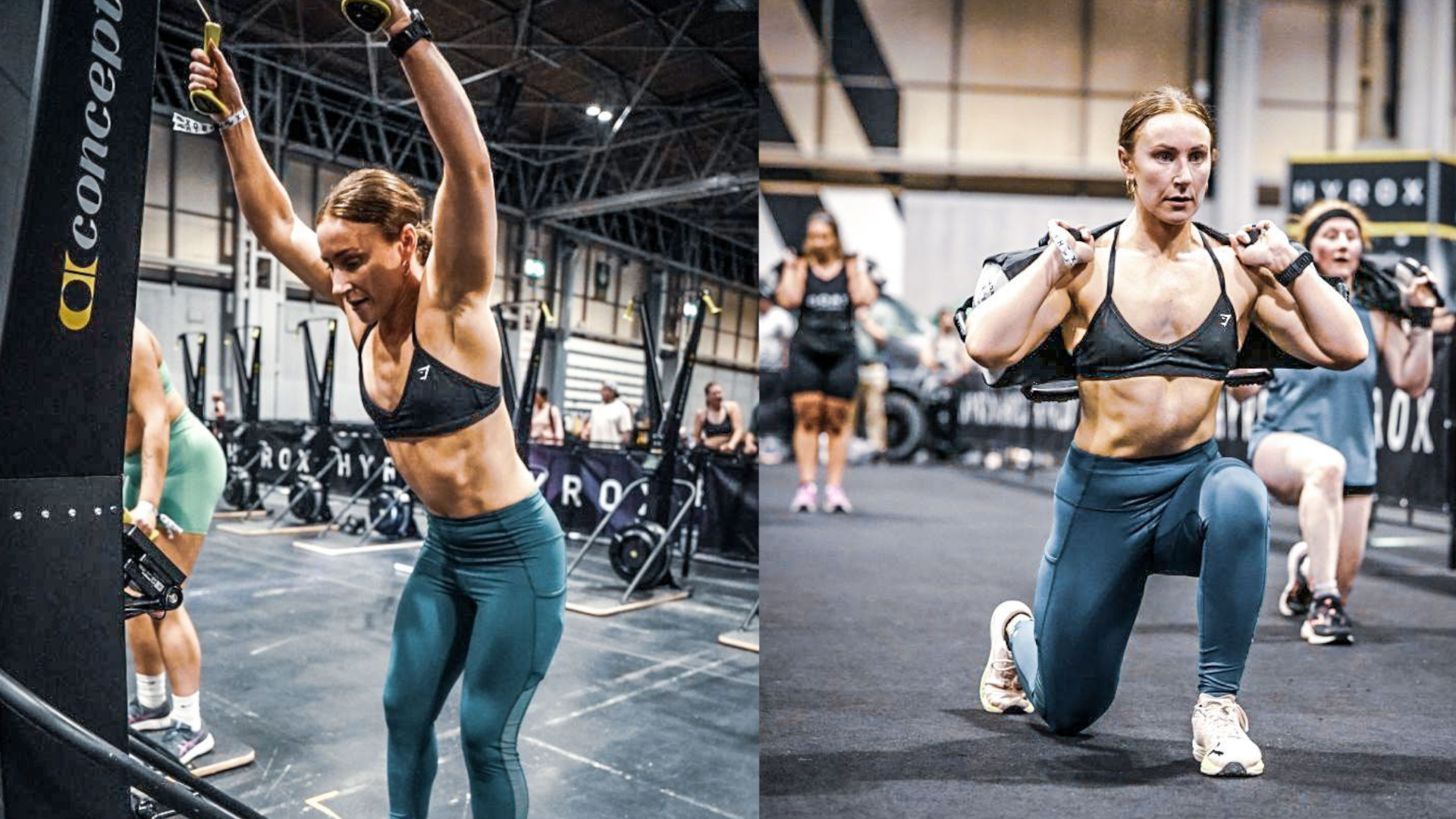
Huddled in the start tunnel with 20 women, I bob up and down on the spot nervously. Intense music is playing through the speakers like we’re about to go on the world’s worst roller coaster, and there’s a TV in the corner with a timer on its screen counting down the seconds till go time.
I quickly turn to the woman next to me and fire three different questions at her. I feel sick to my stomach and need to try and distract myself. Then, before I know it, the timer hits 10 seconds. Everyone stops talking and begins rolling their shoulders and bouncing on the spot, gearing themselves up to run. Three seconds, two, one and we’re off!
I always hated sports day with a passion and never was a fan of cardio. Plus, I don’t like doing things in front of large crowds, so you’re probably wondering why I decided to do a HYROX alongside thousands of other people. I don’t really have a special reason; I’d been weightlifting for three years, had hit my goals and was keen on a new challenge. So, I decided to give myself four months, having never run in my life, to try and take on the biggest indoor fitness race.
Time to train

For those who don’t know, HYROX (external link) is a race that consists of eight kilometres of running with eight different functional movements (from sled pushes to farmer's carries and cardio machines).
I knew swapping from weightlifting to HYROX training wasn’t going to be easy, so I signed up with a strength and conditioning coach (links to Instagram), which was well worth the investment. Rob set me out five days of training a week, which were split between strength work, compromised running (so running under fatigue), conditioning and a long run.
The hardest part for me was the running by far because weightlifters don’t do cardio, so it was quite a shock to my system. I’ll never forget him telling me, “Just go out and enjoy the run and don’t worry about the time”. The moment I started doing this, I was actually able to complete my runs without any breaks.
I went from no cardio to being able to run 8k in 30 days, and by month two, I could run 12k non-stop. I also got a running watch to keep track of my progress. I used the Kiprun GPS 500, which is affordable and reliable, and I'd never start my run without the FoodSpring energy aminos (external link), which were amazing at providing a slow release of energy.

We worked a lot on my running technique, too, as I’d always come back with terrible pain in my hips and lower back. I invested in a good pair of running shoes, the Puma Velocity Nitro 2 – as Jennifer Muir, the Fittest Women in the UK had dubbed them the ‘winning HYROX shoe’. These five exercises/drills helped my running technique massively, and once we started implementing them into my training, I was able to complete a run with no lower back pain.
The closer to race day we got, the strength work went down, the cardio went up and every single workout contained some of the HYROX movements. It was, without a doubt, the hardest training I’ve ever done. I don't think I've ever left the gym sweating so much in my life, but after each session I had a huge buzz.
Race day

My start time wasn’t till 7:30 PM, so I had a lot of waiting around to do, not ideal for my pre-race nerves. Once I finally set off, I knew pacing myself was key, as I had eight 1km run intervals to get through, which I was planning to use as my recovery. But, it’s very tempting to try and catch up with others sprinting past you.
First up was the 1000-metre SkiErg. This was a good opportunity to catch my breath back after the run, but it was station two – the 50 metres 105kg sled push – and station three – the 50 metres 78kg sled pull – that I was really nervous for. I’d heard about the notorious ‘HYROX carpet’ that makes the sleds feel as though you’re moving a dump truck, so all I knew was it was going to be tough.
When I arrived at the sled push, a lot of the women’s sleds were lifting up off the floor, so I had to get down really low when pushing to stop this from happening. It felt much heavier than what I’d been training with (up to 170kg), and I even lost my shoe at one point!
The sled pull (as I expected) was by far the worst though. As soon as I tugged the rope, that sled was going nowhere. Every time I pulled, I practically sat on the floor. It was my longest station, taking me almost seven minutes to complete, but once I’d done it, I knew the worst was out of the way.
“Thank god, 80 metres of burpee broad jumps next,” I thought as believe it or not, I actually liked them during training. I can confirm I have officially changed my mind – it was the hardest station after the sleds and by the end, my legs were on fire.
Thankfully, the 1000-metre row was up next, and I used this as recovery and to just get my breathing back on track before my next run. The 200-metre farmer's carry with two 16kg kettlebells gave me the confidence boost I needed. They were my strongest station, and I completed them in under three minutes. As were my 100-metre lunges, finishing them in just over five.
As headed off on my final run, I had a quick glance down at my watch, it said one hour 23 minutes. I knew my goal of an hour and a half was looking slim, as it would mean having to sprint around the arena, but I knew I could come somewhere close. As I ran into the wall ball station, I was confident with how I was going to approach them – five sets of 15, with a 15-second rest in between each set – that's 75 wall balls in total using a four-kilogram ball. The plan paid off, and I managed to smash them out in under four minutes.

I felt absolutely elated crossing the finish line (as you can tell from the picture above), and I finished with a time of one hour and 33 minutes. I honestly couldn't believe I had completed it, as I'd really struggled to even get out the door that day due to nerves.
Would I do another HYROX? If you asked me that immediately after the race, my answer would have been 'hell no', purely because of how sick I felt. Now, I'm keen to hit that goal of an hour and a half. The atmosphere is amazing, and it's so inspiring to see people of all ages and sizes take part, with some people not even running it, just walking.
I've discovered so much throughout the whole process, like how much I enjoy hybrid training. I genuinely don't think I'd ever be able to go back to just bodybuilding and lifting weights now, as despite not being at my strongest, I'm certainly the fittest I've ever been. But, most importantly, I've proven to myself that hard work does pay off, and you really can achieve anything when you put your mind to it.







